The pink indian against the invisible beast: Noel Nutels' battle (2020)
Género : Documental
Tiempo de ejecución : 1H 11M
Director : Tiago Carvalho
Escritor : Claudio Tammela, Tiago Carvalho
Sinopsis
Public health physician Noel Nutels' ideas and the footage he made of Brazilian indigenous peoples between 1940 and 1970 come together to denounce the historic massacre against native communities.

Bill Markham, un ingeniero estadounidense, supervisa la construcción de una presa en la selva amazónica. Mientras está trabajando, unos indígenas raptan a Tommy, su hijo de siete años. Diez años más tarde, Bill consigue encontrarle viviendo con la tribu Los Invisibles, a la que Tommy, ahora Tomme, pertenece. Esto dará lugar a un significativo choque cultural entre ellos.

En este desgarrador documental, una joven que prepara su tesis doctoral recurre a la cámara para dar visibilidad a su lucha diaria contra el síndrome de fatiga crónica.

En 1560, poco después de la destrucción del imperio inca, una expedición española parte de las montañas de Perú rumbo a las selvas del Amazonas, en busca de la legendaria tierra de El Dorado. A través del diario del fraile Diego Gaspar de Carvajal iremos conociendo detalles y circunstancias de aquella peligrosa aventura...
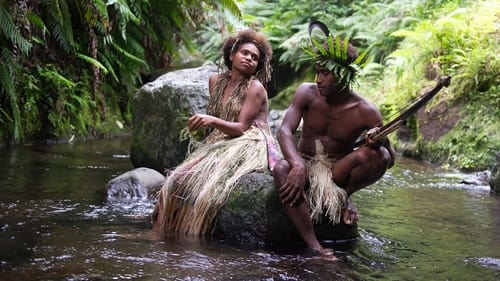
En una isla remota del Océano Pacífico, en la que abundan los bosques, la lluvia y la actividad volcánica, dos jóvenes enamorados deciden desafiar a sus tribus. Wawa y Dain se aman, pero él es el nieto de un jefe de los Yakel y no pueden estar juntos. Por eso los dos deciden huir, pero serán perseguidos por enemigos guerreros que intentarán acabar con sus vidas. Entonces tendrán que decidir entre sus corazones y el futuro de la tribu, mientras que los aldeanos deberán enfrentarse a una dura decisión: la preservación de su cultura tradicional o la adaptación a las crecientes demandas de libertad individual.
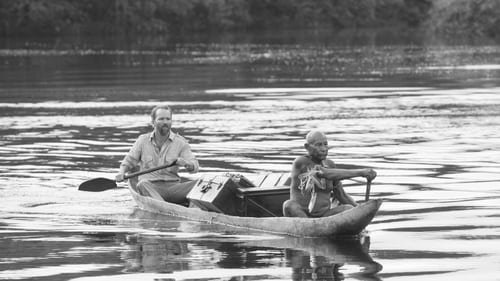
Karamakate fue en su día un poderoso chamán del Amazonas, es el último superviviente de su pueblo, y ahora vive en aislamiento voluntario en lo más profundo de la selva. Lleva años de total soledad que lo han convertido en chullachaqui, una cáscara vacía de hombre, privado de emociones y recuerdos. Pero su vida vacía da un vuelco el día en que a su remota guarida llega Evan, un etnobotánico americano en busca de la yakruna, una poderosa planta oculta, capaz de enseñar a soñar. Karamakate accede a acompañar a Evan en su búsqueda y juntos emprenden un viaje al corazón de la selva en el que el pasado, presente y futuro se confunden, y en el que el chamán irá recuperando sus recuerdos perdidos. Esos recuerdos traen consigo vestigios de una amistad traicionada y de un profundo dolor que no liberará a Karamakate hasta que no transmita por última vez su conocimiento ancestral, el cual parecía destinado a perderse para siempre.
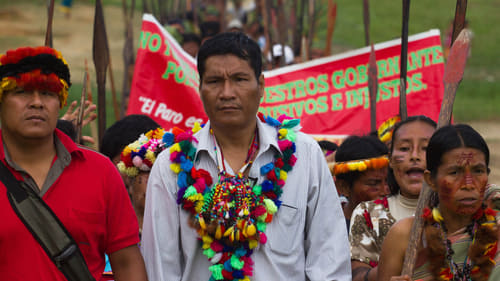
Documental que se coloca en la línea de fuego directamente frente a dos poderosas fuerzas. Por un lado está el presidente Alan García, quien, deseoso de entrar en el escenario mundial, comienza agresivamente la extracción de petróleo, minerales y gas de la tierra indígena amazónica que había permanecido intacta; mientras que por el otro lado, el indígena Alberto Pizango lidera una fuerte oposición por las demandas de sus seguidores que fueron ignoradas. Finalmente, la tensa guerra de palabras estalla en protestas y enfrentamientos entre ambas partes, en una escalada que conduce a la violencia mortal.

Are the medicines and every day products we use putting us at risk RESISTANCE sheds light on the global crisis of antibiotic resistance and uncovers how our extensive use of bacteria-killing antibiotics has created a new kind of disease, resistant to the medicines created to destroy it.

Inside the dramatic search for a cure to ME/CFS (Myalgic Encephalomyelitis/Chronic Fatigue Syndrome). 17 million people around the world suffer from what ME/CFS has been known as a mystery illness, delegated to the psychological realm, until now. A scientist in the only neuro immune institute in the world may have come up with the answer. An important human drama, plays out on the quest for the truth.

For ancient Mayans, cocoa was as good as gold. For subsistence farmer Eladio Pop, his cocoa crops are the only riches he has to support his wife and 15 children. As he wields his machete with ease, slicing a path to his cocoa trees, the small jungle plot he cultivates in southern Belize remains pristine and wild. His dreams for his children to inherit the land and the traditions of their Mayan ancestors present a familiar challenge. The kids feel their father's philosophies don't fit into a global economy, so they're charting their own course. Rohan Fernando's direction tenderly displays a generational shift, causalities of progress in modern times and a man valiantly protecting an endangered culture. Breathtaking vistas of lush rainforests contrast with the urban dystopia that pulled Pops children away from him. Will one child return to carry on a waning way of life

Plant Explorer Richard Evans Schultes was a real life Indiana Jones whose discoveries of hallucinogenic plants laid the foundation for the psychedelic sixties. Now in this two hour History Channel TV Special, his former student Wade Davis, follows in his footsteps to experience the discoveries that Schultes brought to the western world. Shot around the planet, from Canada to the Amazon, we experience rarely seen native hallucinogenic ceremonies and find out the true events leading up to the Psychedelic Sixties. Featuring author/adventurer Wade Davis ("Serpent and the Rainbow"), Dr. Andrew Weil, the Grateful Dead's Bob Weir and many others, this program tells the story of the discovery of peyote, magic mushrooms and beyond: one man's little known quest to classify the Plants of the Gods. Richard Evans Schultes revolutionized science and spawned another revolution he never imagined.

Diabetes. Prostate cancer. Alcoholism. Parkinson's diseases. Just a handful of many common illnesses that Western medicine has been inadequate in curing or treating. Witness the story of eight brave souls as they leave the developed world behind in search of deeper answers. Living in seclusion for one month in the heart of the Amazon jungle, these men and women take part in the powerful healing practices of Peru's indigenous medicine men, working with centuries-old plant remedies and spiritual disciplines. In their most desperate hour, these patients are forced to confront not only their physical ailments, but their own spiritual and psychological barriers in the process. Five will return with real results, two will return disappointed, and one won't come back at all.

Documentary written and presented by scientist Richard Dawkins, in which he seeks to expose "those areas of belief that exist without scientific proof, yet manage to hold the nation under their spell", including mediumship, psychokinesis, acupuncture, and other forms of alternative medicine.
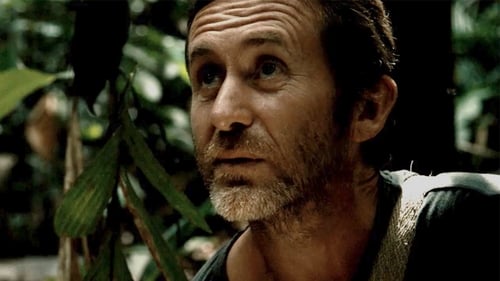
Explorer Bruce Parry visits nomadic tribes in Borneo and the Amazon in hope to better understand humanity's changing relationship with the world around us.
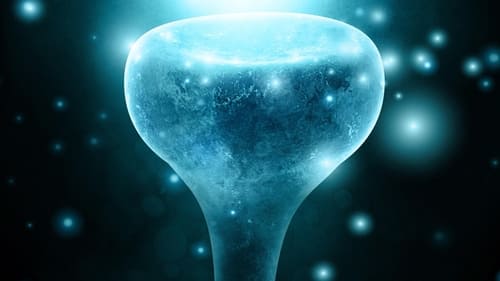
Through interviews with leading psychologists and scientists, Neurons to Nirvana explores the history of four powerful psychedelic substances (LSD, Psilocybin, MDMA and Ayahuasca) and their previously established medicinal potential. Strictly focusing on the science and medicinal properties of these drugs, Neurons to Nirvana looks into why our society has created such a social and political bias against even allowing research to continue the exploration of any possible positive effects they can present in treating some of today's most challenging afflictions.

Benito Arévalo is an onaya: a traditional healer in a Shipibo-Konibo community in Peruvian Amazonia. He explains something of the onaya tradition, and how he came to drink the plant medicine ayahuasca under his father's tutelage. Arévalo leads an ayahuasca ceremony for Westerners, and shares with us something of his understanding of the plants and the onaya tradition.

Herlinda Augustin is a Shipibo healer who lives with her family in Peruvian Amazonia. Will she and other healers be able to maintain their ancient tradition despite Western encroachment?

Men and women of the !Kung people in Ojokhoe, Namibia perform healing dances by firelight. First we see men perform the giraffe dance, and then women perform the !gwa dance.
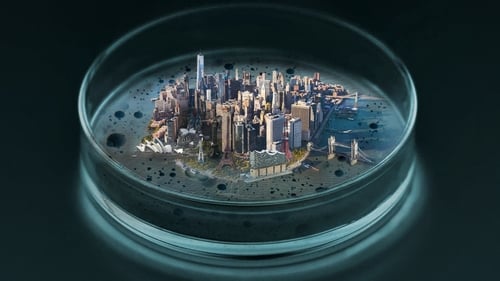
The UN General Assembly regards antibiotic-resistance as a "global and most urgent threat". The WHO alarms that we could fall back into a "post-antibiotic age". The film tells us how we got there: It is a story about how negligence, greed, and short-sightedness have rendered the lifesaving effects of antibiotics powerless. It is a science-thriller about disillusioned, fighting doctors, rebellious scientists, patients wrestling with life-threatening diseases and diplomats searching for a global solution. They all are Resistance Fighters.


TOKYO Ainu features the Ainu, an indigenous people of Japan, living in Greater Tokyo (Tokyo and its surrounding areas), who are and actively in promoting their traditional culture in a metropolitan environment away from their traditional homeland, Hokkaido. Shedding a common assumption that all Ainu live in Hokkaido, the film captures the feelings, thoughts and aspirations of Ainu people that who try to follow the Ainu way no matter where they live.













